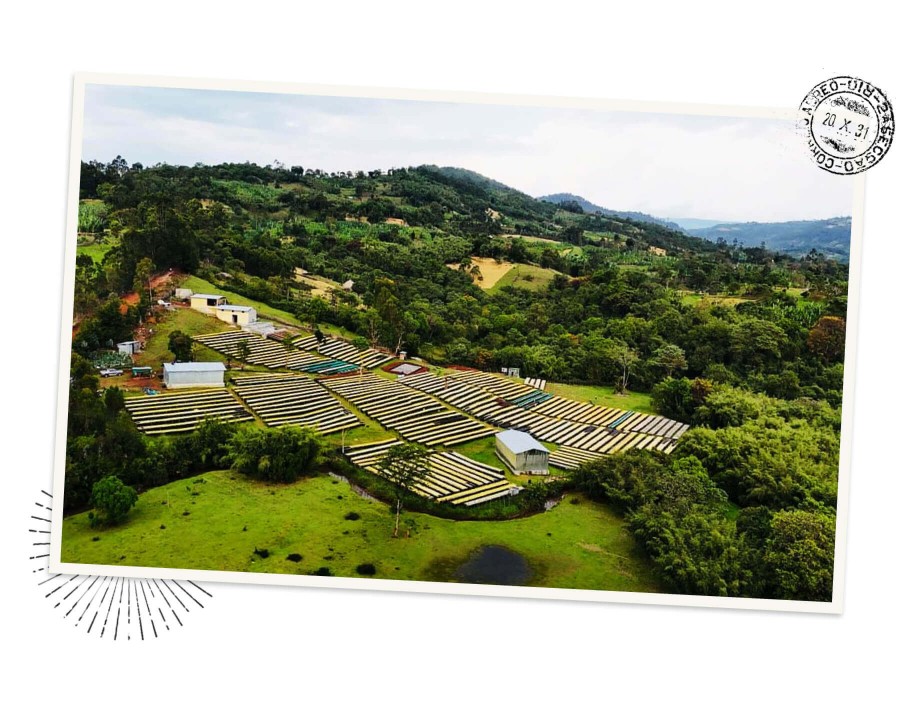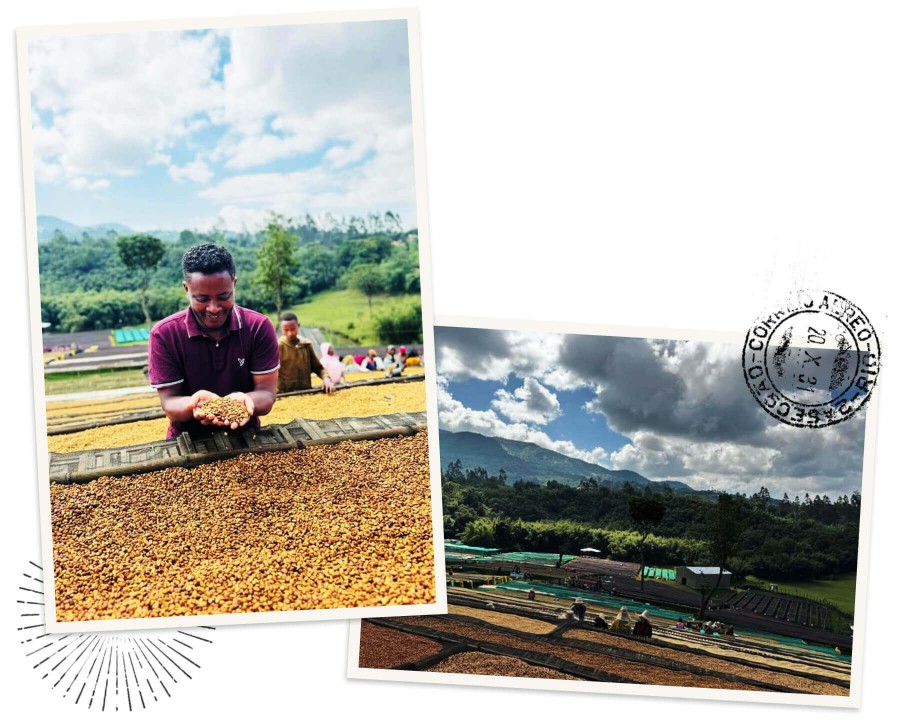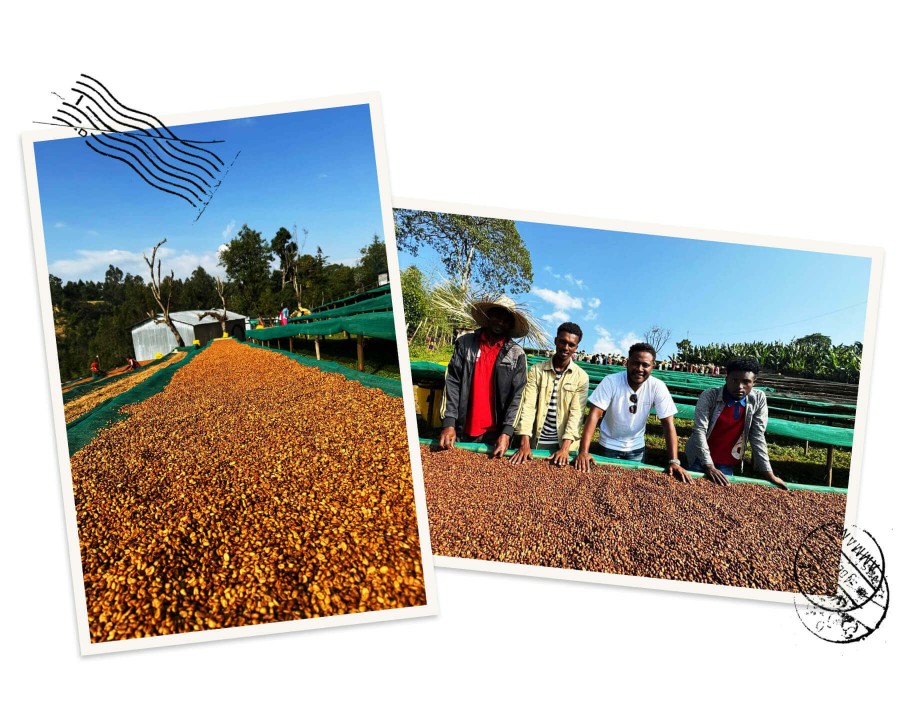




Super clean with high clarity
medium body and sweet, well-integrated acidity
This coffee is exactly how we want a washed Ethiopian coffee to be: clean with a high level of clarity and an elegant structure. In the cup, bright, floral notes of jasmine unfold, accompanied by sweet, fruity hints of peach iced tea and a delicate, lemony freshness. Whether as an espresso or filter coffee, it impresses with its pure elegance and floral notes. It's a coffee that makes you want to close your eyes and simply let yourself be carried away.




Medium coarsley ground coffee: 14g
Water: 240ml
Temperature: 94°C
—
First pour: Let coffee bloom with 60ml of water for 35sec
Second pour: Fill up gently wetting the entire coffee bed until 240ml
—
Total extraction time: 2min 30sec
Fine ground coffee: 18g
Extraction volume for 2 espressi: 50g
—
Extraction time: 26sec

Tamiru Tadesse is a coffee producer who has been in the coffee business for eight years. He works with about 200 farmers in Delo Kebele, Bensa Zone in the Sidama region. He collects about 182,000 kilograms of red cherry from an estimated 80 hectares of land owned by the farmers. Tamiru processes his coffees using a wide variety of processes. He then sells his coffee on the international market, mainly to Asia.
However, he is interested in developing new markets and promoting the unique flavours of Bensa coffee. "We participated in the Cup of Excellence 2021 to promote the coffee grown by our farmers, create better market connections and improve farmers' incomes." In 2021, Tamiru's coffees took 1st and 5th place.

This washed coffee comes from the Sidama region, known for its rich production of Ethiopian coffee. The farms around the main station in Alo Bensa are home to hundreds of coffee producers who are well trained and supported by the Tamiru team in production, harvesting and transport to neighbouring stations.

The people of Sidama are highly dependent on the income generated by their farms, with more than 80% of the regional population involved in small and large-scale coffee production.